|
9/2/2018 Editor's Remarks Thomas Hawk Flickr
What makes one an outsider? I've been asking myself this question since day one. Sometimes it's as simple as being caught out in the rain. Sometimes it's not so simple at all. Sometimes it's jails, institutions and nearly death. Sometimes it's the things that are done to us and the things that we do to ourselves. Being at odds with our bodies, the places and people we come from, what shaped us and what broke us. I've not held to a single mold by which I've tried to fit the pieces in this journal together. I let the one's who come across Anti-Heroin Chic and who sometimes rest here for a night or two guide and inform me. Some are outsiders in a very obvious way, other's in a not so obvious way. Do I think that we are all outsiders in some sense? I do. Life ain't easy, even when it looks from afar like one has it all down, we've all been that bag blowing in the wind. It wasn't until afterwards that I realized a theme was emerging in this round of submissions; love, good, bad and indifferent. Failed love, lost love, parental love, earth love. Addiction, eating disorders, and some of the darker topics explored here are all signs of love's collapse. Too many of us fail to get the things that we need early on. Either too much of what shouldn't happen does, or the things that should happen don't. Sometimes a relationship runs its course or turns toxic and must be released like a scream. Sometimes we're too young to get to decide what is happening to us. Years later it still doesn't add up. We let the poem or story carry it, that interminable question mark, the fuck was up with that? There will never be anything the fuck up with that, as Cheryl Strayed says, the horrible things done to us. The horrible things we do to ourselves. This big beautiful issue is triple the size of our last one, and so commenting on each piece individually is simply not possible this go around. But hopefully I'm speaking to the spirit of the goods brought to the table this changing of the seasons. I envision us weary artists all sitting around a big warm fire, breaking bread and astonished that we made it this far. Isn't it a miracle? Everything is a miracle or nothing is. I want to thank all of the spirited and resilient voices who came to rest their feet and stay with us a while this September. I do not take it for granted how much of a risk it always is to send the most vulnerable parts of ourselves out there into the world. It takes guts to create and it takes damn near everything we've got to share such things with others. Thank you for letting us in. For telling us where it hurts and where it also sometimes sings with joy. Now, dear reader, won't you step inside this house? Let us sing for you a song. We'll tell you about just where we've been, it shouldn't take too long. James Diaz Founding Editor Anti-Heroin Chic  Avery Williamson lives in Morgantown, WV. They are a founding member of The Bench: an Artist's Collective. This coming winter they will help edit Queer Appalachia's Electric Dirt. They were EIC of Calliope, an arts magazine, and an active member of the Appalachian Prison Book Project. They have two beautiful gardens and one beautiful cat. You can find them on Twitter @AeTBench. 9/2/2018 Poetry By Amee Nassrene Broumand vivek jena Flickr Sea Things My garden opens to the deep. Waves break over the rocks-- liquid glass, squid mass, pulpo. Sunstars digest their prey externally. Do they eat the drowned? a child asks. In mental theaters across the beach, we see the sun cover a bloated head, its mouth fastened over an eye. Pop. The winter sun dies in my garden, shimmering underground. Drops of gold & indigo daub the sand. Twenty million years old, the guide says when I show her the dappled rocks, inedible even for the sea which spits them out, peach pits upon the murky blooms & grasses of the beach. I sleep I sleep I sleep myself awake this haunted afternoon. The Projection Curse Revealed Ingredients Geometry of a silver womb. Pi shards. Eyeball jellyfish. Parrots. Foxes. Earthquake pulses, stuttering camera. The pond in winter, fiend-lined for the stampede. Directions When: Sundown in the rail yard (while iron spans creak over living waters & quicksand-faces sputter, supine). How: Wars will penetrate the hippocampus, hiccupping forth a quicksilver mess. Then: The beach will erupt in iridescence & gut-froth & burgundy stains. 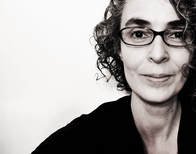 Amee Nassrene Broumand is an Iranian-American poet, photographer, & grad student in computer science. Nominated for a Pushcart by Sundog Lit, she also has poems in A-Minor Magazine, Empty Mirror, Menacing Hedge, Occulum, Word Riot, & elsewhere. She blogs for Burning House Press & served as their guest editor for the month of March 2018. Find her on Twitter @AmeeBroumand. bronx. Flickr Brendan Fraser and I Aren’t Talking Croatia is creaming us We’re rooting for opposite teams We argue over Lovren and the biased Ref Brendan laughs And I imagine the deep crow prints In the snow skin around his eyes Though they sparkle wide Like he’s still a small boy I think that’s why we love him His grammar is terrible But I ignore what I know I tell him That if we forfeit our morals To win Then the victory is empty He’s bored of the debate He tells me I look pretty And for a sad moment longer I am not alone. At 4pm in Georgia He apparently falls asleep ‘Stressed up’ from the match The next afternoon We have our final fight When I ask him Who he really is. 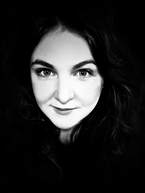 Oak Ayling is a young woman quietly stitching poetry into the blurry windswept border between Devon and Cornwall UK. Highly commended by Indigo Press in the Geoff Stevens Memorial Prize, She has gone on to be published in the inaugural edition of the fast growing literary magazine From Whispers to Roars, its anticipated second issue and in the forthcoming charitable anthology “Shorthand” by author Helen Cox in support of UK homeless charity StreetLink. Oak is a poet "fervently seeking purity and purpose". vivek jena Flickr [the title of this poem is the sound of the guitar in Led Zeppelin’s “Tangerine”] Car windows down. At 75 the air hurts coming through, an unending slap. The car is old, my paternal grandmother’s. A Catalina, sounds breezy and romantic. It isn’t. It’s tan. It’s hot out, the highway is melting. I want to slip in, not return. Dive down, look for something else, maybe the real Catalina. Not really. I’d been there before – it was all white people in shorts and with neat haircuts. On the dirt road now, soft air brings in the smell: Oak trees Bay leaves Dust Dry grass makes that smell: California. The radio is all tin treble. It takes tapes, eats them, too. Neil Young said that Everybody Knows This Is Nowhere. And then it was. I pull over, dust like a fan behind me, the Catalina a giant tan peacock screeching through this central valley, this heartland, this no man’s land. In the trunk, a cooler Full of melting ice and sweating cans. I hang my hand in the freezing spike, Come up empty. The sky is honey now. Looking at those rolling hills makes me sleepy. I don’t know what I want. That’s okay. Neither do you.  Elizabeth Dutton is a California native. She was the recipient of the 2017 Morton Marcus Poetry Prize for “Native Daughter of the Golden West” and is the author of the novel Driftwood. She earned an M.Phil. in Creative Writing from the University of Glasgow and a B.A. in English from the University of California, Davis. She suffers from crippling writer’s block, but is still filled with inexplicable joy. Jill Mceldowney is the author of the forthcoming chapbook "Airs Above Ground" (Finishing Line Press 2018) as well as "Kisses Over Babylon" (dancing girl press). She is a cofounder and editor for Madhouse Press. Her previously published work has appeared in journals such as Vinyl, Fugue, Half Mystic, the Sonora Review and other notable publications. Demi Richardson's arresting poem in DecomP, California Burn Barn, recently caught my attention. Its walk through the long halls of memory wastes no space, filling the page up achingly at every point. By its ending I was breathless, that's the power of the poem you don't see coming. Demi was kind enough to answer a few questions I had. We talked about the difficulty of working with memory poems, (one of her strongest poetic traits, the ability to dig into then and make it breathe into the sacred space of now) observing along the way that while "the past is important, we can't live there" alone. James: A lot of your poems feel deeply attuned to the past and to the memories of a much younger you. First loves and heartbreaks, first and perhaps lasting questions. In one of my favorite poems, California Burn Barn, you're asking your father to describe your mother and there is a sense of pain that one is perhaps too young to fully articulate then. It isn't easy to write about painful experiences that happened to us when we were young and lacked so many necessary internal resources to help navigate and make sense of them. How do you process the emotions as they come up for you through the workings of the poem and the memorializing or holding of the event? Demi: I think writers/artists/musicians, etc., are often surprised by emotions that come up when working on a piece that’s rooted in a specific memory. Going back to a moment again and again for inspiration can be really overwhelming. I’ve walked away from a lot of pieces because I felt that in the process the moment was becoming something different, changing from what it originally was in a way I didn’t like. I do like the challenges that come with certain pieces, though. I think sharing difficult work with a loved one you trust can be helpful, too. I write about my family quite a bit and have brought different drafts of poems to a close friend who will listen and talk through what I’m trying to work out. It’s tough when working with memory poems because you want to honor what you experienced in that moment, but not let it take over. I think the past is important, but we can’t live there. I don’t want my work to be all about those spaces and times, so I try to strike a balance between what I felt then and how that moment is affecting me now, as I write about it. It can take years and years and years before you’re ready to write about a certain event, or it can take a week. It all varies. Another part of processing emotions while writing is digging into the subject. I think painful memories are the easiest ones to draw on, but easy does not always mean good. I think a real challenge artists face is tapping into the root of a moment and seeing it beyond what’s on the surface. It’s easy to look at a painful breakup or a sudden loss and think, oh, I’m writing about heartbreak. But heartbreak isn’t just sadness and pain. Regret isn’t just wistfulness or remorse. That’s something I have to relearn with every poem. J: What do your most favorite poems do for you, the one's you've come to love most throughout the years? Beyond the poems that we think are really great pieces of literature or the ones we feel obligated to read, what are those certain poems that have filled a space inside of you or touched old hurts in the way salve is applied to a wound? Who are the poets who have moved mountains in you? D: “I Go Back to May 1937” by Sharon Olds is such a big one for me, because it so beautifully ties different beliefs and perspectives in time together. I’m drawn to pieces of writing that center around family, not just romantic love. I appreciate how this poem illustrates the reality of our own lives and choices spilling over into the lives of our children. Having to go back and forgive our parents for the decisions they made. Recognizing them as human beings who are imperfect and complicated. “Litany In Which Certain Things Are Crossed Out” by Richard Siken brings me back to a college classroom that I loved, and the delight I felt the first time I read it. Siken takes such simple imagery and turns it all into magic, every time. He breaks my heart. Whitman’s “O Me! O Life!” is one that I have taped to my mirror at home. It’s such a hope-giving poem; it holds such a tender space in my heart. I’m happier whenever I see it. J: It feels to many like we are currently in our darkest hour, politically, ecologically, economically. Our culture machines are moving faster than we often have time to process, our response synapses are often flooded to breaking point. Given the fragility of our times, and the poet’s ability to stand back a bit and try and sort through the rapid onslaught, (although one is never completely removed from the world) to slow time down just enough to get a glimpse of things underneath the hood of the everyday, to find the inner and outer reprieve of soul, the breathing room for something more endurable than the artificial and the fleeting, where do you locate the poet's task in the face of these uncertain times? Is resistance and outcry an ethical imperative for the poet, for the all too quickly dismantling and diminishing world? D: First, I do want to acknowledge the badass artists using their mediums and platforms to incite change, bring awareness of important issues, and demand a response from their audiences. They are fierce and they are doing good work. That being said, I reject the idea that poets or artists in general have any responsibility to society with their work - when I’m writing something, the last thing I am trying to feel is weight or pressure from outside expectations. That ruins good art, I think. Maybe other artists and writers work better under those conditions, they need outside pressure to push harder in their work, and that’s great if it works for them. I write about what I feel or experience, but I don’t think I’d ever consider any aspect of what I do imperative. I think my only job is to keep writing. I would encourage every artist/writer/musician/filmmaker, etc., to just keep creating and not worry about whether they are doing it right, whether their work is serving some great, higher purpose. It already is, because you’re choosing to create. You keep showing up for yourself and your work. I don’t hold myself or anyone else to any other expectation. J: Natalie Merchant once said something that, as I get older, I find to be true, 'You have to have lived a very long time before you can find your voice.' She hinted that it was only now in her fifties that she could write and say the things she couldn't say in her art her whole life. This is a frustrating realization to have. Of course we always hope that we are growing and becoming our wiser, more compassionate selves as we get older, but to spend the majority of our lives knowing somewhere deep down inside of us that we've yet to arrive at that place, the place of absolute truth telling, of our best work, in the meantime that can hurt like hell, searching for the thing that eludes us. What is your take on the poet's voice, young and older? What advice would you give to especially young poets, beyond staying the course, how to grapple with the time that they must wait for? It seems to me that to be a young poet is to be in between a real rock and a hard place, limited access to our insides, to our truths which are constantly evolving new psychic and emotional skin, new soul muscles. D: (Love the idea of our truths evolving new psychic and emotional skin. Soul muscles is a cool phrase. Stealing that!) Rather than view it as “I haven’t reached my place of absolute truth telling yet” and constantly wondering when they will, I would encourage writers to spin that perspective a bit and instead think, “How exciting that I have unlimited potential with my work. I have my best years ahead of me.” Wouldn’t it be unfortunate if, in your twenties or thirties, you believed that you had already created the best art you will ever make in your entire life? I’m in my early twenties and I am stoked for the writing I’ll be doing when I’m fifty or sixty. I’m excited to see how I grow and change as a writer. But the idea of waiting for that is not one I take seriously. I’m not waiting for anything. The older I get the better my writing gets; I grow more comfortable with myself and my voice. I’m not waiting for my voice to arrive *someday*. I have my voice. I use it. I’m not waiting twenty or thirty years to come to the realization that I have something to say. I’m saying it now. My advice to young writers is: Creative work loses a lot of its impact when you view yours as less important or influential than another’s, especially if you are basing that assumption off of your age. Some of the most incredible movers & shakers on this planet were teenagers, right? Everyone, in some way, is creating art. It’s all important and it’s all good. There will be enough room and space for art to happen as long as we keep *making* room for each other. Feeling as though you’ve found your voice may take a long time, sure, but that idea shouldn’t take away from the fact that you have a voice right now and should be using it. Please, please use it. J: What is the best piece of advice you've heard (not necessarily given to you directly)? D: Nothing - literally nothing - is guaranteed. Everything good is just icing. That, and: You are responsible for what you create. No one else gets to determine your work ethic. J: When your writing gets stalled, where do you turn or return for (for lack of a better word) inspiration? D: I don’t like turning to other poets or artists for inspiration once I start something, because eventually my piece will feel inauthentic, or I’ll start playing the comparison game and can’t make any progress. When I’m stuck I try to remove myself from the writing - I’ll stretch and listen to music, or go sit in my living room (which has the best windows), or walk downtown, or cook a meal with a friend. Distraction, even for a few minutes, helps, and usually I come back to my writing with a clearer head. There are certain songs I listen to when I’m in a writing slump that get me thinking about a certain time/memory I love, so I’ll try to put those songs on when I can. J: What fragrance reminds you of home? D: I grew up by the beach, so probably the smell of sunscreen or sea salt. J: Are there any other forms that influence your work, whether nature, music, science or visual art? D: Music and visual art are definitely big influencers for me. Poetry is very similar to music - look what Andrea Gibson is doing, and Mary Lambert. I love crossover work. I also dig urban and industrial art, murals and random street art that I come across unexpectedly. Oddly enough the first ever piece of writing I had published was influenced heavily by astronomy trivia I had randomly Googled one day. I’m honestly not sure if anything that appeared in the final piece is factual... hmm... J: What was the last great book you read? What was the last great film? D: I recently finished “So You Want To Talk About Race” by Ijeoma Oluo. She’s astonishing. I’ll reread that again and again. I tend to rewatch a lot of my favorite movies. I think with questions like this there’s pressure to say something profound, but honestly the last thing I watched was Superbad, which I do think qualifies as a great film ;) J: What are you working on at the moment? D: I’m working on a full length chapbook! Which is an exciting and somewhat miserable process! Demi Richardson studied creative writing at Indiana University of Pennsylvania. Her work has previously appeared with decomP, Construction Lit, The Adirondack Review, Strange Poetry, and Broken Tooth Press, among others. Links to all of her published work can be found at www.deminicolle.wordpress.com. 9/2/2018 Poetry By Rosemary McLeish João Prado Flickr Deadly Nightshade It seemed like a pretty way to die. A purple flower, a few green leaves. Stuffed in the mouth, easy, nicer than lupin pods, not so crunchy. In the garden of my grandmother there are gooseberry bushes but I didn’t come from there: they are only laughing at me who say so. I come from the sky and the hospital where they changed me, gave me to the wrong mother. She doesn’t like girls, my grandmother. She’s a nasty old woman, face like rhubarb, tongue like a nettle. She catches me hiding in the gooseberry bushes, drags me out, careless of cuts and scratches. Her hands are hurting hands. “What have you done?” she says. I say nothing. She drags me to the house, to the downstairs cloakroom, but I don’t want to go. I want what I cannot have, my daddy to take me away with him. But he is already gone and I am too sad and too little to look for him. How does she know? She always knows everything. She is a witch, mouth like a thistle, fingers like forks. She sticks them down my throat, makes me sick. She smacks, shouts, calls me ‘stupid little girl’, says I have no right, what was I thinking? I hate her. Everything goes black. Nobody speaks to me. The mother rules the roost now. Slaps are easier to come by than words. I am stuck. There’s no escape. And I don’t know it yet, but I will always have a grandmother to make me sick, to drag me and shake me, to walk the floor with me. She is there when I take the pills She mocks my lack of coins for the gas. She taunts me when I lie on the kerb in Avignon and can’t get up. Today she haunted me when I thought of the knives in the kitchen. Mad, cruel-fingered witch forcing me to live in this angry world without him, without him. Horror History There are no ghosts here, just memories of the grandmothers, the one with her grinding poverty, the cruelty of her teasing, the other with her frowns, her second sight, her dislike of girls. There is no axe murderer behind the shower curtain, only the black of the boot cupboard, the Three Wise Men on the attic stairs, the three bears lying in wait in the living room, the green man with the spear crouched round the bend of the toilet. There is no filth in this hell-hole, apart from the stink of the infant school toilets, the shit on the seats, up the walls, the wee on the floor, the gagging smell and the chains that don't pull, and the holding on all day, all the way home on the bus, all the way down to the gate, and the letting go at the sight of home, the secret washing of knickers, the silence, the shame. There is no gore here, except for the blood in the toilet two weeks out of every four, the covert incineration of rags, and the scratchings and pickings at sores that don't heal, the whiff of the hospital ward made familiar by Munchhausen's proxy. There are no starving Africans in this story, rather the lonely stretches of Anorexia, the effort not to be noticed, to take up no space, the strange instinct to have nothing on the plate, nothing inside. There is no hostage taken here, only the empty rooms, bare bones, bare boards, hard back-breaking words, the shadow of the executioner on a spirit continually broken. There is nothing amiss here but the evil in a mother's eyes, the torture of a father's silence, the apathy of sibling witnesses, the ache of a heart full of hate. My Mother’s Scars I don’t know about the diagnosis but I’ve seen my mother’s scars. I’ve seen the scratching at the itch, the picking at the scalp, the fingers roaming through the hair. I have seen the scabs when giving her a perm. I have to wait for sores to heal or be the one to make her cry with every searing accidental burn. I don’t know the diagnosis but I’ve seen my mother’s scars, the fingernails as sharp as knives, the gouging of the unhealed wounds, the blood running down the thighs. I’ve seen the strata on those thighs, the ropes and silvery lines of ancient harm, the overlay of pinker, shinier traces, and on the surface of this archeology yesterday’s half-formed scabs. Do other mothers ask their daughters to cut their nails so they can’t break the skin? Or do other girls live in calm houses without secrets and whispered sharing of shameful sorrows, ugly truths? Do other daughters grip their mother’s wrists like handcuffs, handicapping the tearing at the flesh, the baying of the beast in hysteria’s la-la land? While every cell says look away, don’t share this private business, and every thought says this is not my secret, I cannot speak of this. When every tear says Mummy, Mummy, don’t be sad, don’t be bad, let me hold you, let me rock you, let me love you better. I don’t know about the diagnosis but I have lived my mother’s scars. 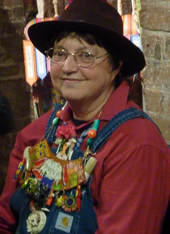 Rosemary McLeish is an outsider artist and poet, now living in Kent, UK. She is 72, and after a long hiatus has started writing poetry and regularly performing it again. She likes to exhibit her poetry along with her artworks, and lately has started making zines which combine both. She is working on getting a collection published in the near future, though the “under forty lines” rule is hampering her progress. Some things don’t change. Cover: Lydia Renee Armstrong Photo by Lydia Renee Armstrong Sony Cybershot I recently had the pleasure of discussing Thicket of Trash with photographer, poet, and master selfie-taker, Lydia Renee Armstrong. Jason Bates: What is Thicket of Trash? Lydia: Thicket of Trash is a portrait photography project that examines ideas surrounding self-image and societal expectations of self-image. The main thing I think about when I take these pictures is the idea of how we see ourselves and how others see us, and how we are influenced by that. I think there’s a stigma surrounding selfie-culture and so-called “Instagram models,” where people are made to feel like it’s shallow to explore yourself in imagery and shame those who take photos of themselves or celebrate themselves visually. I think that’s damaging to positive self-image, and part of what I’m doing with Thicket is challenging those stigmas and reclaiming ownership of my personhood. Felina Tucciaronre Photo by Lydia Renee Armstrong Disposable Camera J: What was the inspiration behind it? L: The very first Thicket of Trash shoot was with my cousin Felina, who is the only other person aside from myself who has ever photographed me for the project. So far, anyway. We did a shoot with disposable cameras, and the idea was to use ourselves and how we decided to portray ourselves to make interesting images. So we planned out our makeup and hair, and what we would wear and what sort of settings we wanted to be in, to see how we could use these things to make a cool or interesting picture. It was kind of like using ourselves and these resources as media, just like you would use paint on canvas. I liked the results so much, I started photographing myself at home using the self-timer on my digital camera. At first, I was just putting on makeup and fun clothes and trying to get a good shot, but then I realized what interested me most was the lines of the human body, so I did a shoot wearing basically tights and a leotard, and then I started shooting myself topless and eventually nude. Which opened up a whole new bag of questions for me surrounding societal judgments on the body, and sexuality. I wanted to challenge the idea that a nude photo was inherently sexual, that a naked body was inherently sexual, that it is somehow taboo to present yourself that way. Lydia Renee Armstrong Photo by Lydia Renee Armstrong Sony Cybershot J: You are both subject and photographer in many of the pieces. What are the challenges and rewards of being both? How is it different when you are not behind the lens? Or when you are not in front of it? L: I’m trying to branch out and photograph other people more often, which I’ve done a little bit. I want others to be able to explore their own self-image and hopefully be able to use these photos to make people more comfortable with themselves and feel good about themselves. I wonder if we didn’t shame people so much for liking themselves, or posting a selfie, and encouraged people to be more comfortable with their physical selves, how much more of their total potential they’d feel more open about sharing with the world. If we can accept and celebrate what’s on the outside, maybe we can get more comfortable letting out what’s on the inside. A lot of what I do with Thicket is self-portraiture. When I’m both in front of and behind the camera, I have total control over creating the image I want, and I can convey the sort of ideas and attitude I want to get across. I know what I want and how to make it happen from both sides. I have a film camera now as well, and love to play with that because I can’t see how the images turn out until they develop, so I have to be really present in the moment. I think what a lot of people don’t get when they see my self-portraits is that I always identify more as the photographer than as the model. When I take a photo of myself, I see myself behind the camera, not in front of it. When I’m photographing other people, I have to sort of tap into what that person is all about and how they would want to be seen, so there’s more trial and error, and it requires me to pay more attention to what I’m doing overall. Everyone I’ve photographed so far is someone I’m close to so that helps, but I try to ask questions and get a good idea of what they want in the image, because the whole point is to make them feel good about themselves and give them a sense of power and worth in those photos. Lydia Renee Armstrong Photo by Felina Tucciarone Canon AE-1 35mm J: What is the process like for you? Where do the ideas come from? How do you decide what to photograph? L: Some of the images I make are meant to convey a deeper idea, and some of them I just thought would make a good photo. There’s almost two sides to Thicket of Trash--there are the self-portraits and the nudes, which are meant to challenge societal expectations and are part of a personal journey of my own, and then there are shoots that are more about an interesting photo. I’m really inspired by fashion photography, and so I’ve done shoots wearing a cocktail dress in a laundromat and evening gowns in the park or on the playground. I really like the idea of being really dressed up in a setting where you wouldn’t normally dress up. I like the juxtaposition of that. The self-portraits and the nudes come from a much more personal place. These are an exploration of myself as much as they’re an exploration of the ideas I’m challenging, and they’re part of a journey I’ve been on this year to get more accepting of myself. A lot of this project is actually about self-love, about learning to love and celebrate myself, and hopefully inspire others to work on that too. It’s the outside of my body that I’m photographing, but really it’s the inside parts of me that I’m trying to get comfortable with, my worth and validity as a person. Whitney Padgett Photo by Lydia Renee Armstrong Pentax K1000 J: How does photography compare to other creative work like writing? L: I’ve been working on a novel for years, and I write poetry and do spoken word around town, and writing has been my creative focus for a long time. Ideally, I want to write novels for a living. That’s what I want to do. But I started doing Thicket of Trash, and it’s kind of taken over. I think writing is more cerebral for me, and Thicket is more visceral. When I write, especially if I’m working on the novel, I have to really focus and get all my ducks in a row and spend this stretch of a few hours doing something that’s really concentrated and tedious and mentally engulfing. When I’m shooting for Thicket, I’m in my body. I’m moving around in front of a camera, I’m having to run back and reset the timer or the shutter if I’m shooting myself, I’m moving around taking photos of someone else, and it’s also more emotional. The ideas are more emotionally inspired. I’m less in my head, and more in my heart and body. I’m still working on the novel and doing poetry readings, but I think where I am in my life right now and what I need creatively is just better suited for Thicket of Trash. Lydia Renee Armstrong Photo by Lydia Renee Armstrong Sony Cybershot J: Who are your favorite photographers? L: Robert Mapplethorpe is probably my number one. I love his early self-portraits and the sharp lines in some of his later nudes. His subject matter would be pushing the envelope even today, but he was doing graphic male nudes and homoerotic photography in the seventies. He caught a lot of flack for being pornographic, but I think he just felt like he was making art. Steven Meisel is a fashion photographer I really love. I stole the laundromat idea from a shoot he did for Vogue in 2005. He also does great portraiture work that captures expression and movement in the body really beautifully. Someone recently reminded me of Francesca Woodman, who was a young woman that made really haunting self-portraits and pictures of women, and killed herself when she was only 22. I love Diane Arbus. I recently got into a photographer named Lisette Model who did street photography around the forties and fifties and took a lot of pictures of older women that are really amazing. J: Where can people find Thicket of Trash? L: Right now I mostly post photos on my Instagram, @lydiareneearmstrong. I also have a few photos coming out in Dark Ink magazine soon. Whitney Padgett Photo by Lydia Renee Armstrong Pentax K1000 J: Why is Thicket of Trash not already a beautiful coffee table book? L: I feel like the coffee table book is something you do later in life when you have a body of work to look back on, and there are enough people out there who care about what you do to actually buy a coffee table book of it. But I am thinking about putting together a gallery show next year. I’m starting to put together a collection that I would want to show, and researching galleries that might be interested in what I’m doing. So we’ll see.  Jason Bates will interject movie quotes into conversations even when the person on the other end has never seen the movie being quoted. His writing has appeared in Before I Leave...Lit Zine, Figroot Press, and aLiteration Magazine, and upcoming in River City Poets Anthology. He is also the founder of Spider Mirror Journal. |
AuthorWrite something about yourself. No need to be fancy, just an overview. Archives
April 2024
Categories |
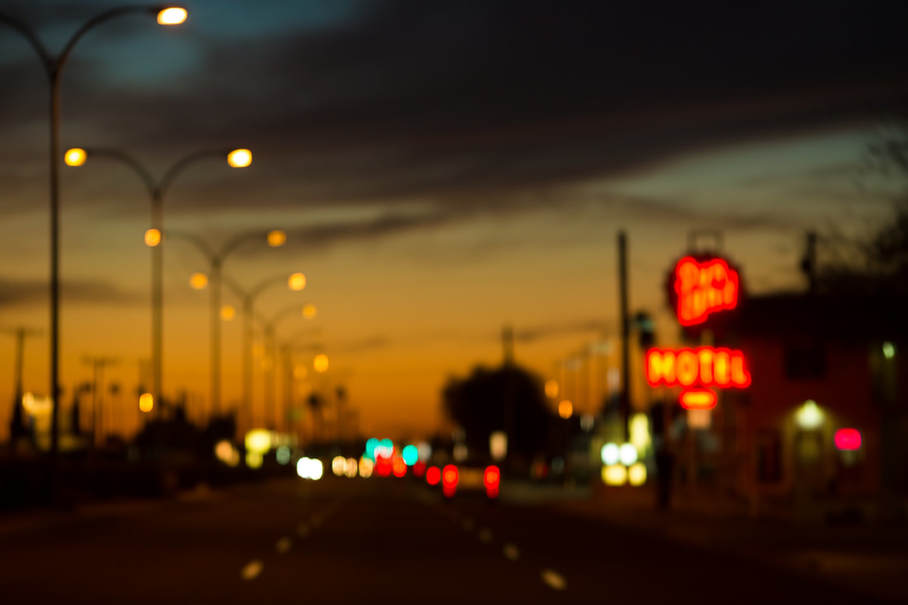
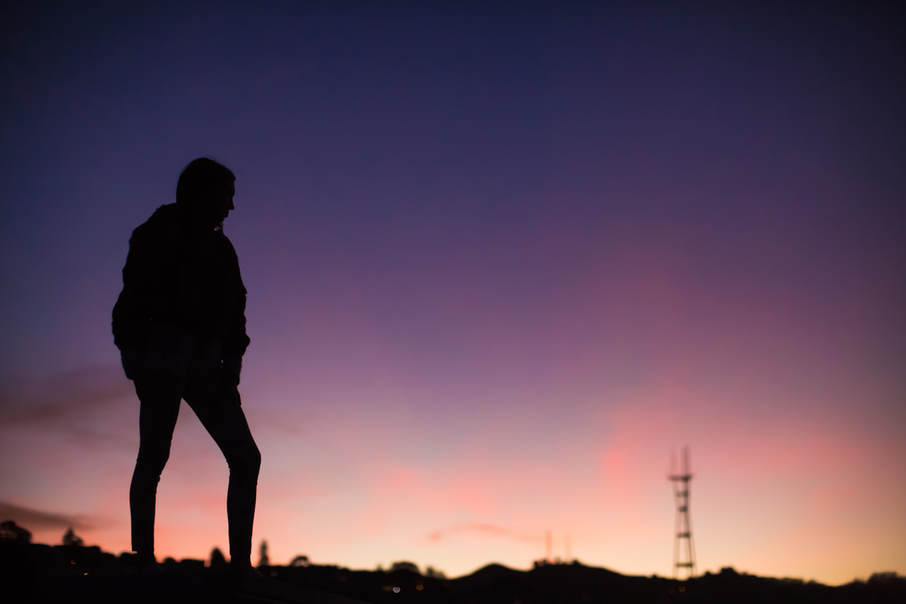
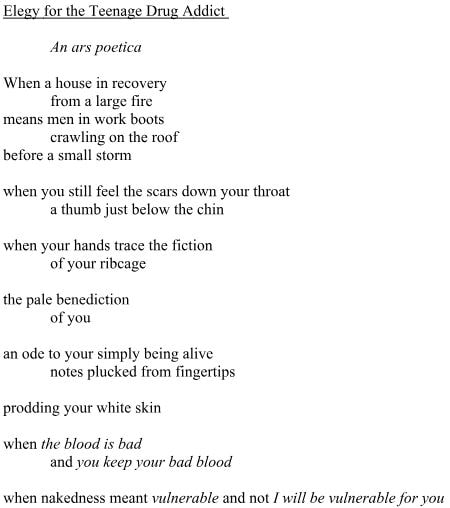
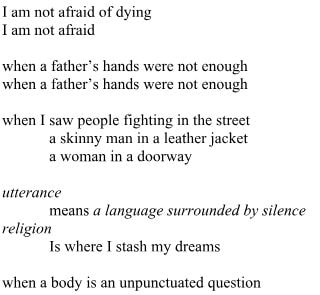
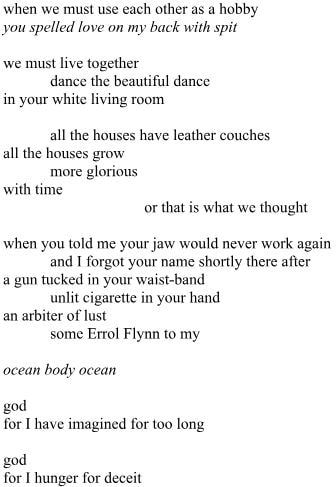
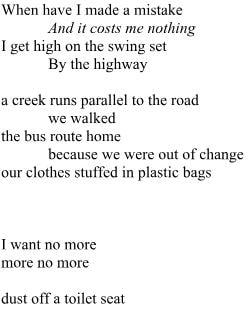
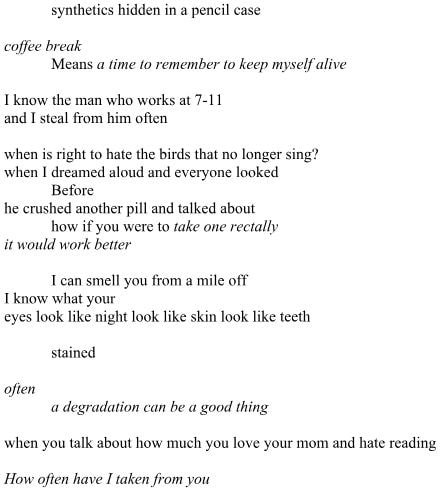
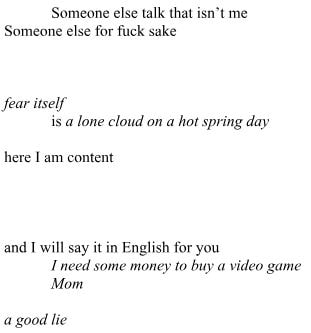
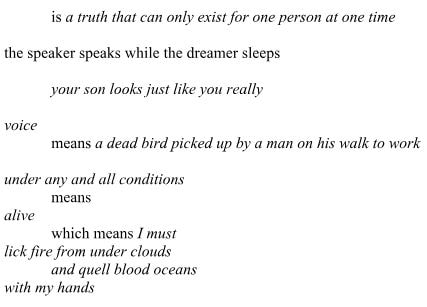
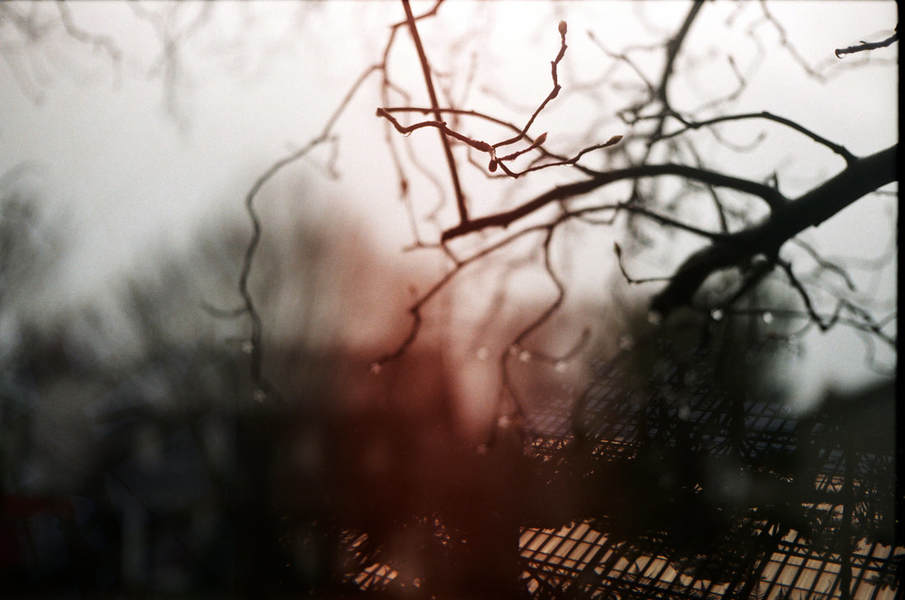
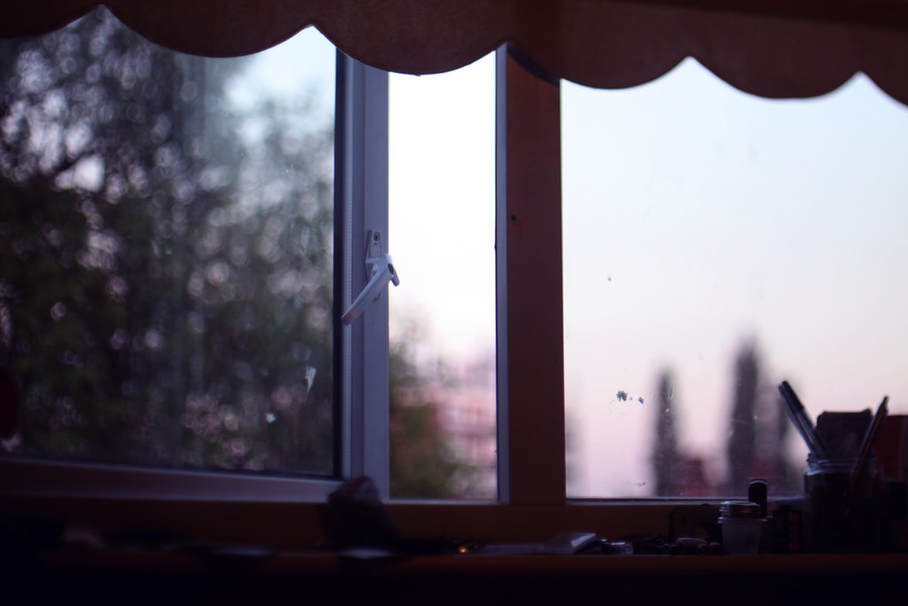

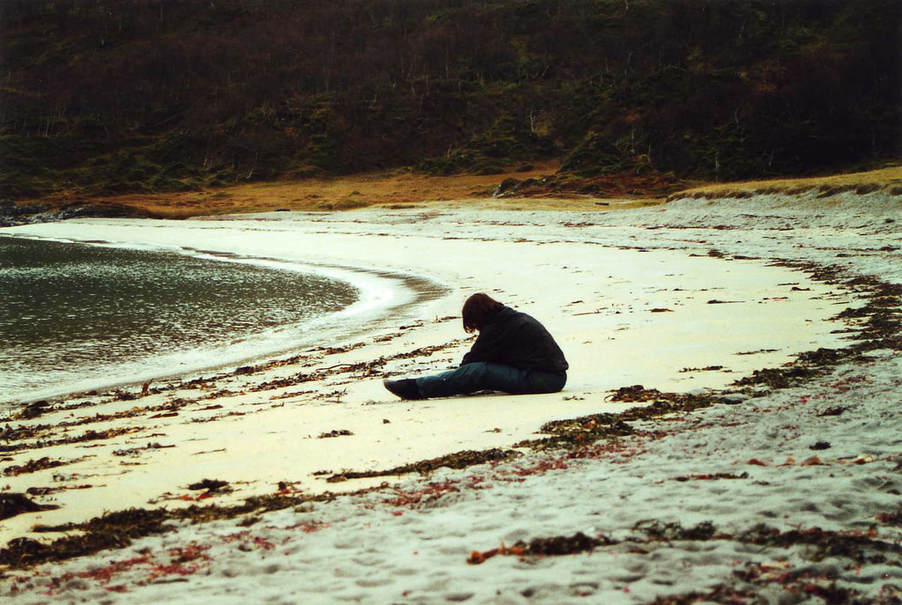
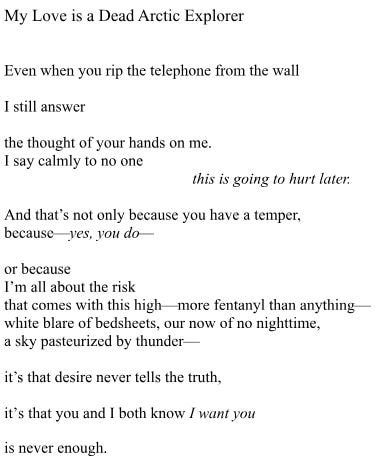
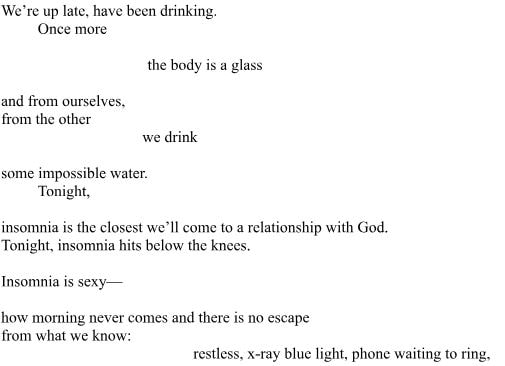
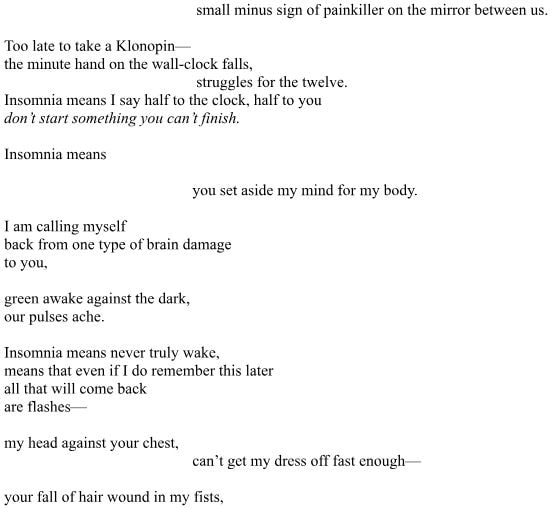
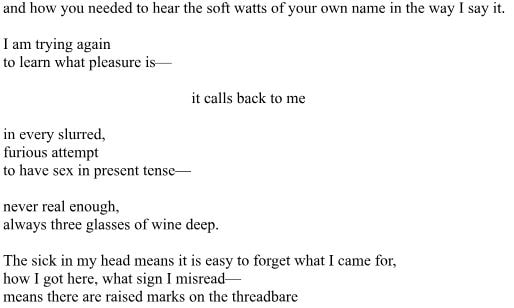
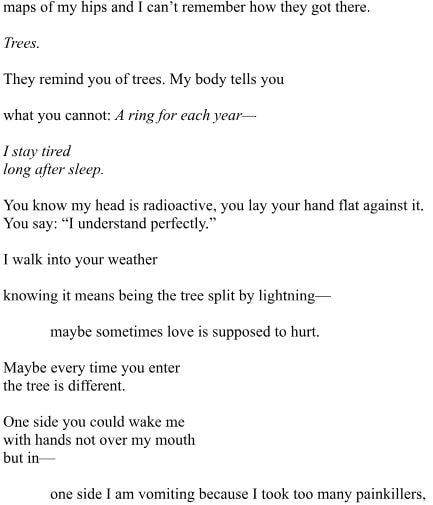
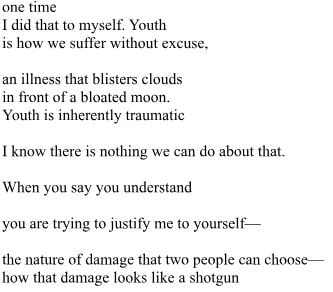

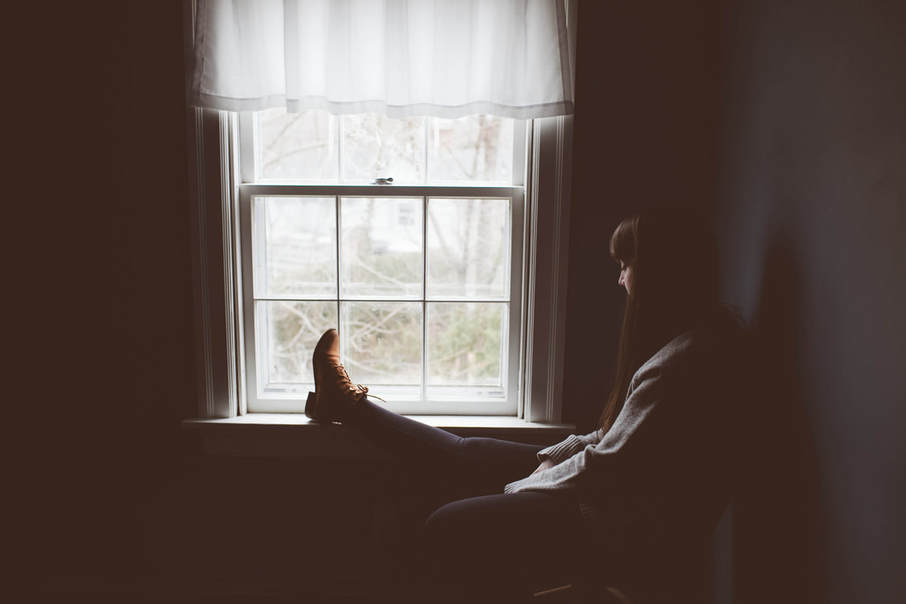
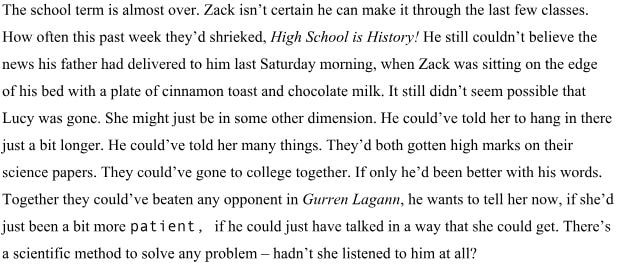
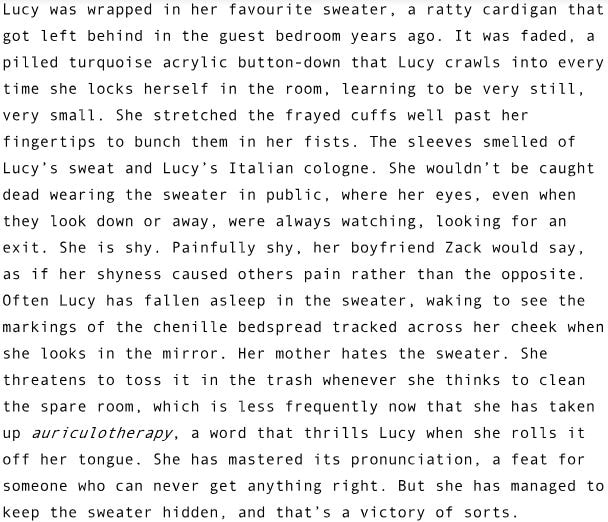
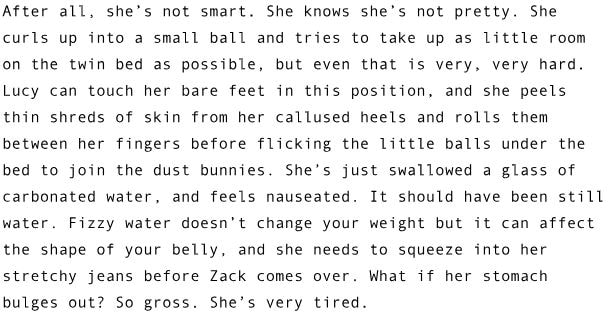
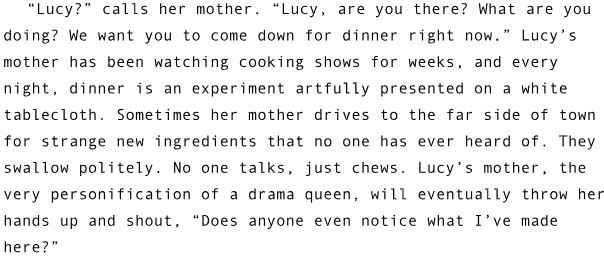
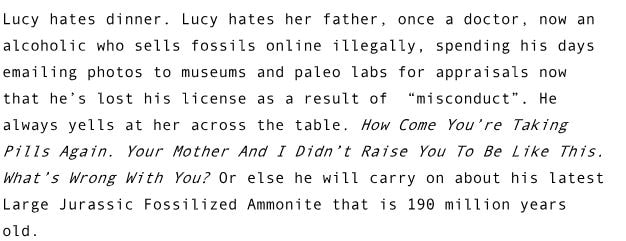
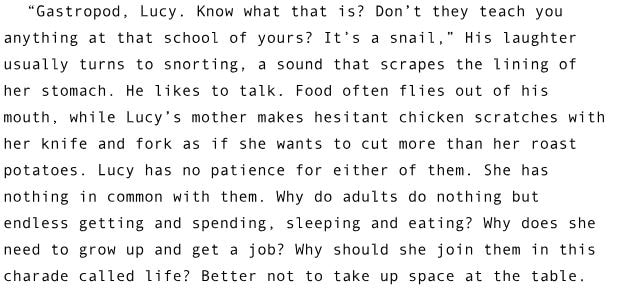
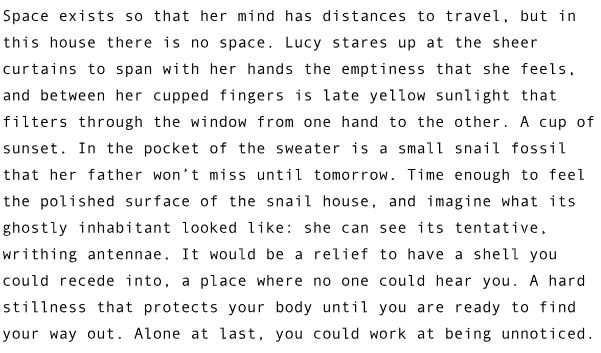

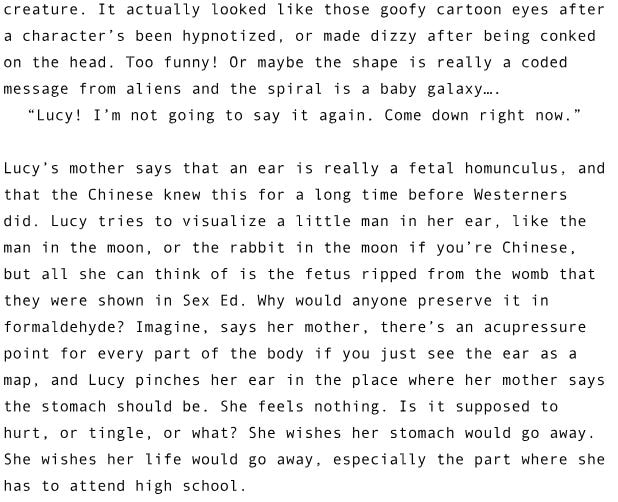
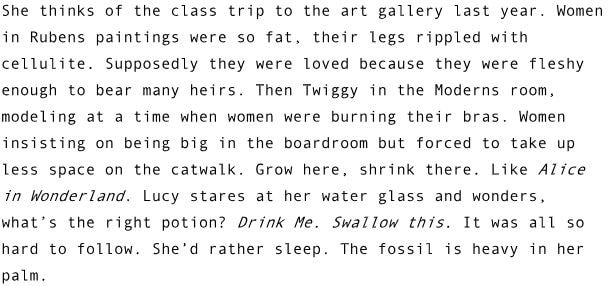
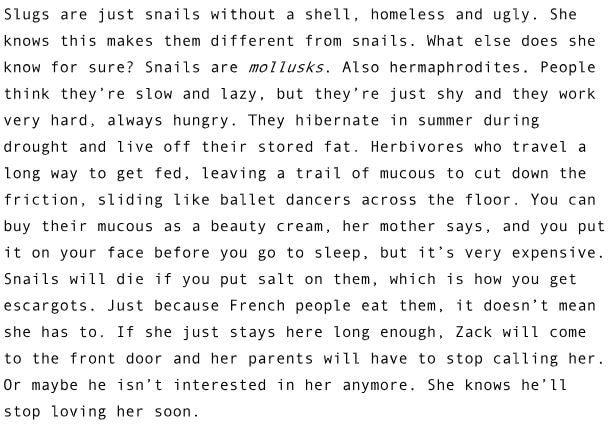
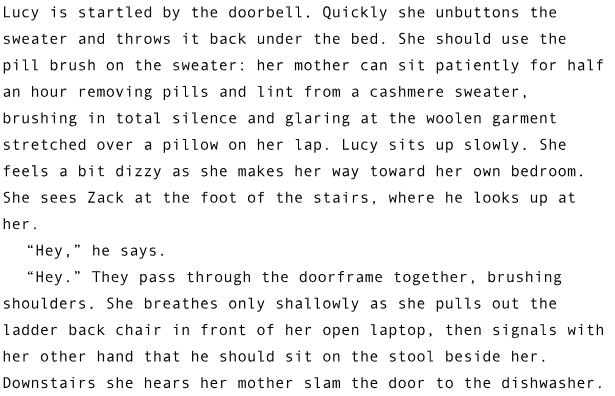
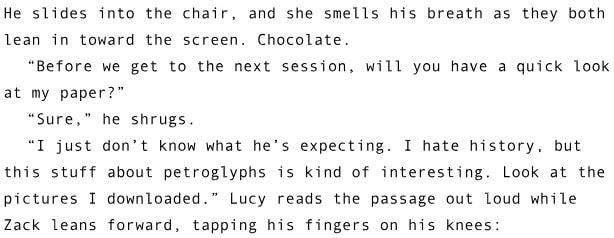
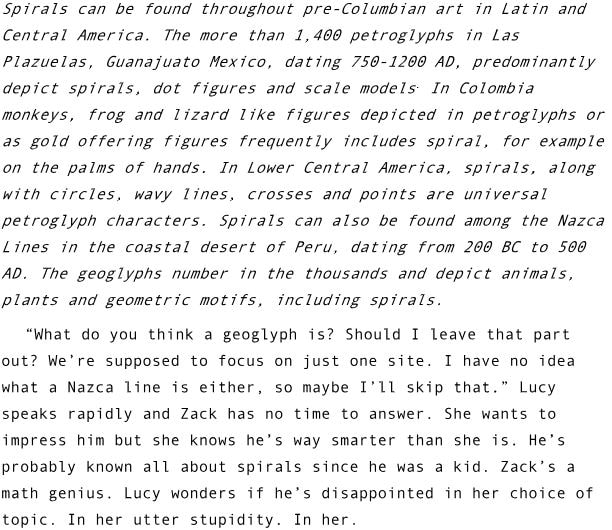
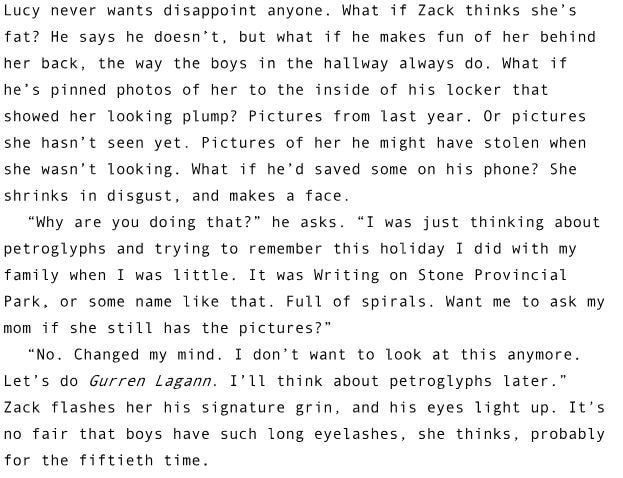
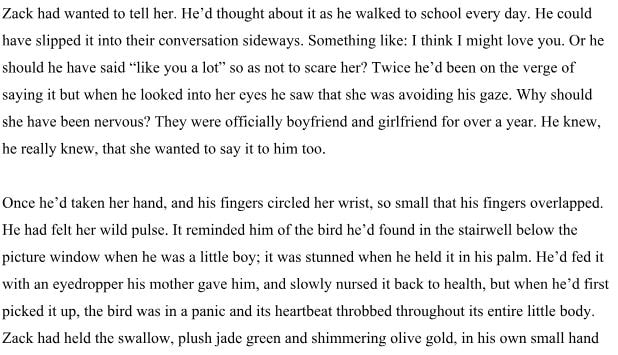
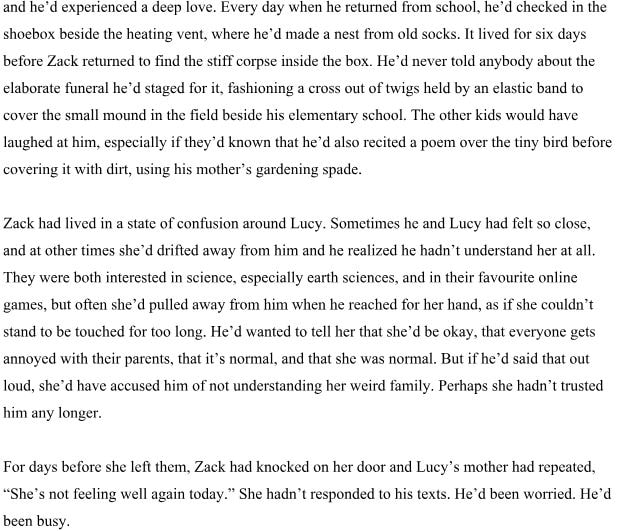
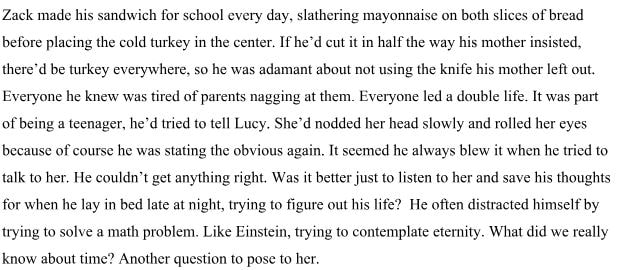
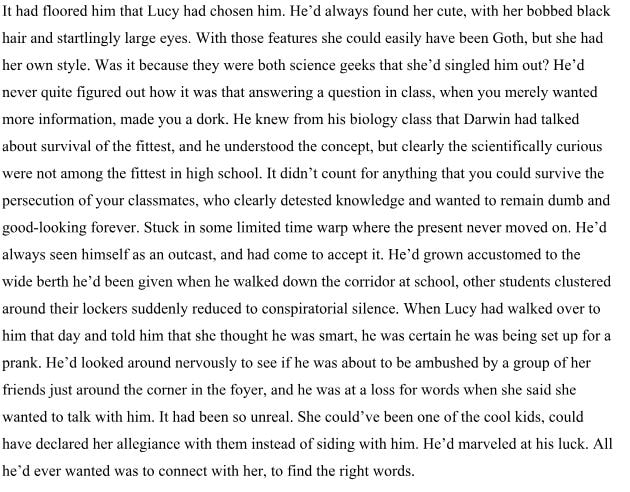
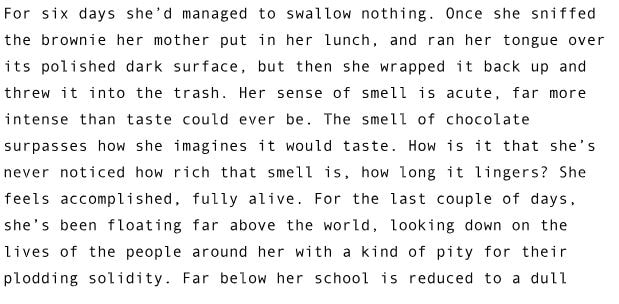

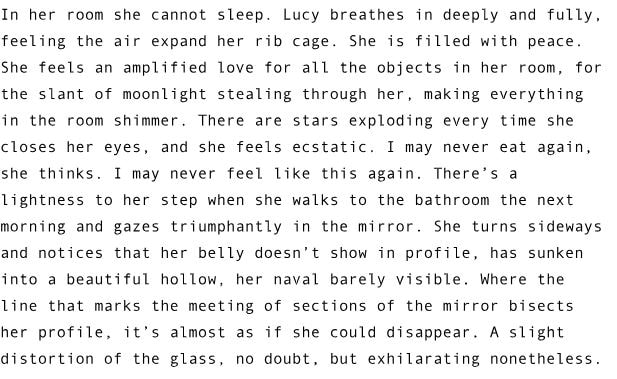
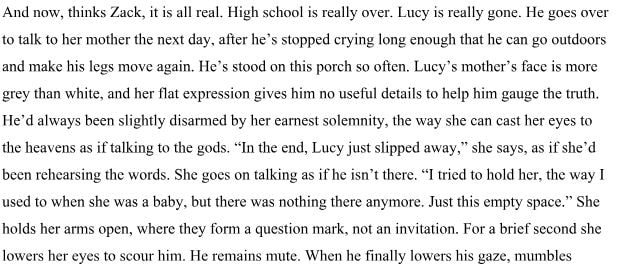

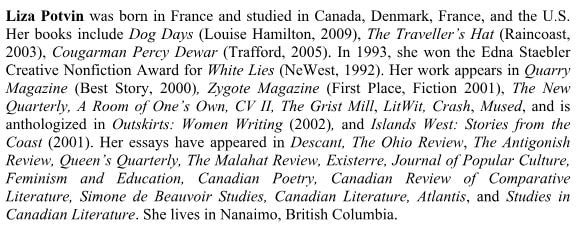
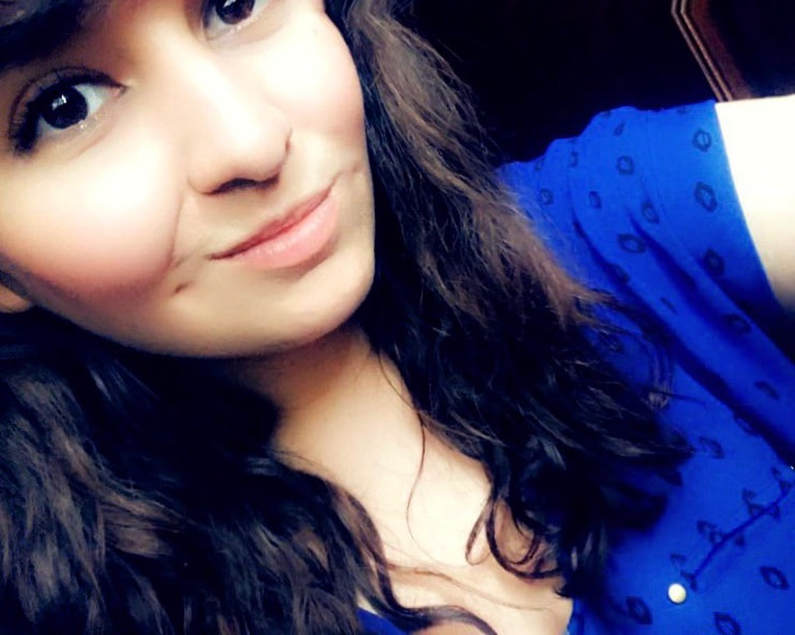
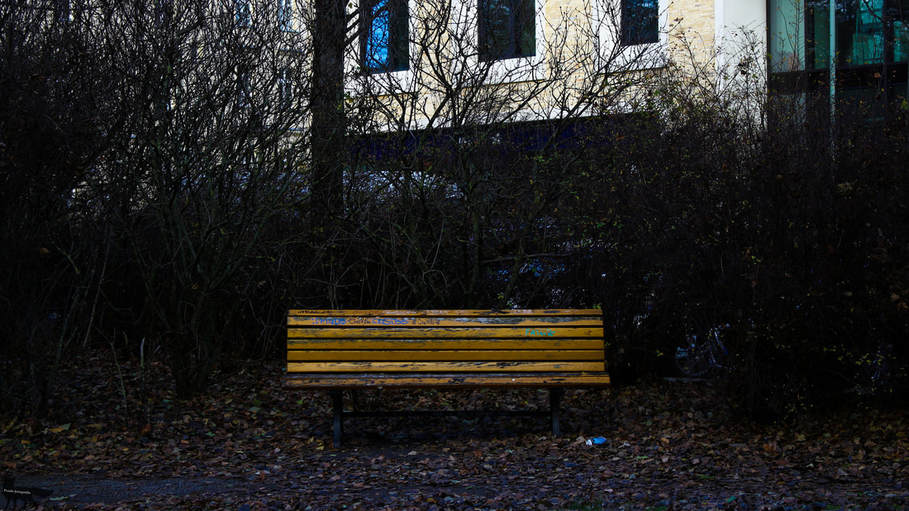
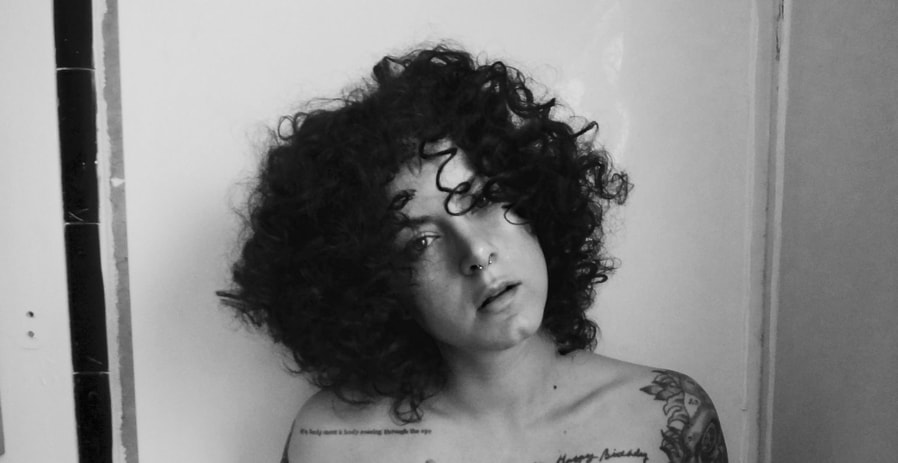
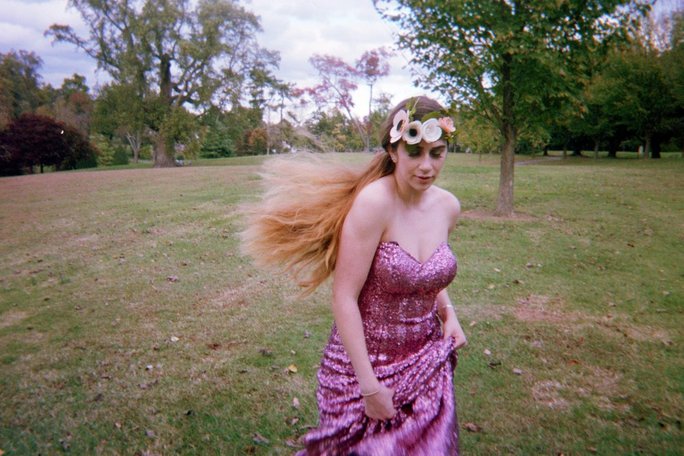
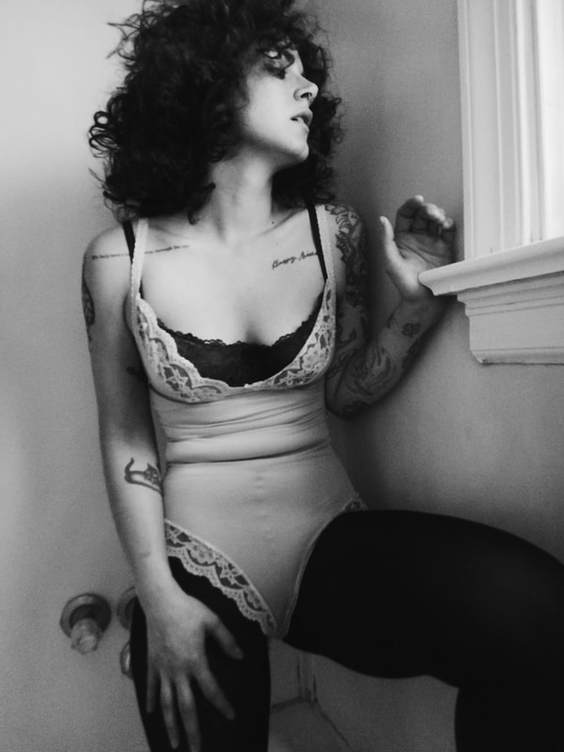
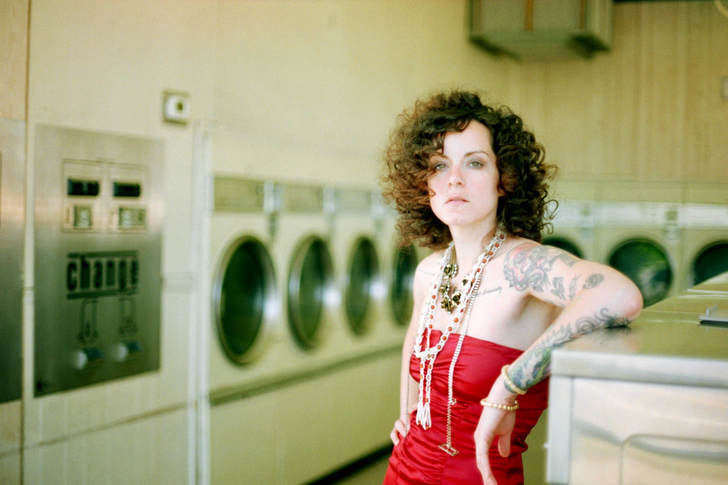
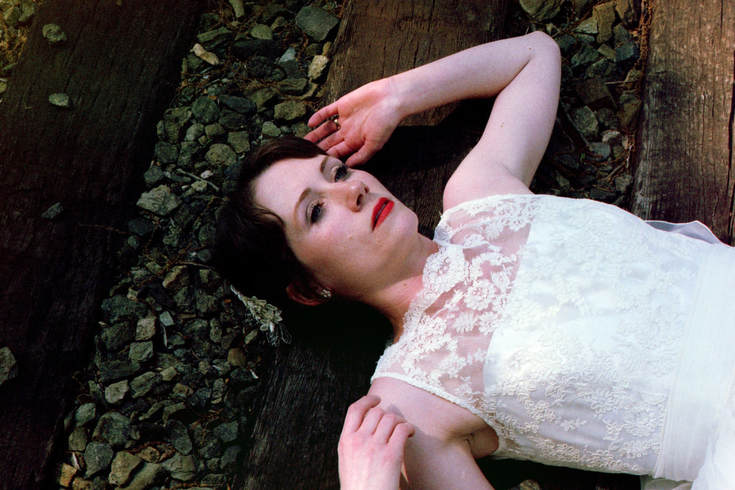
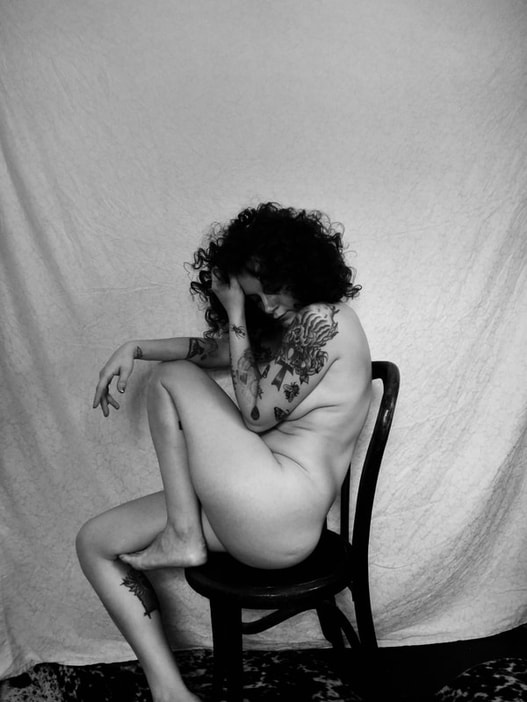
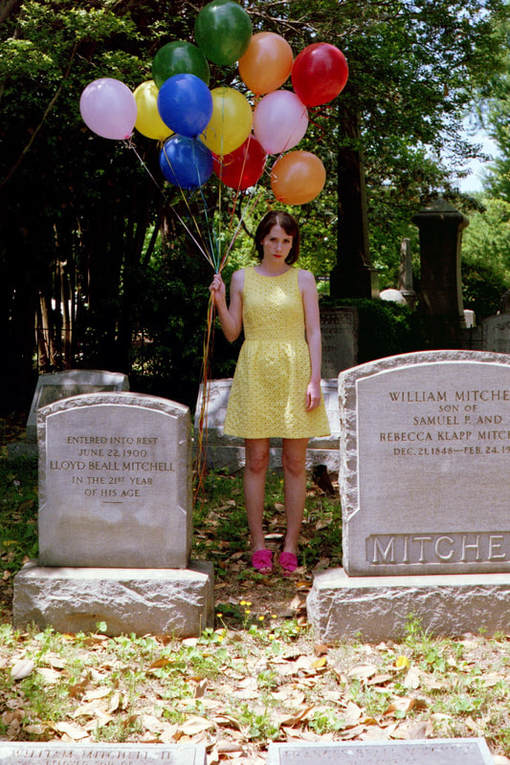
 RSS Feed
RSS Feed
